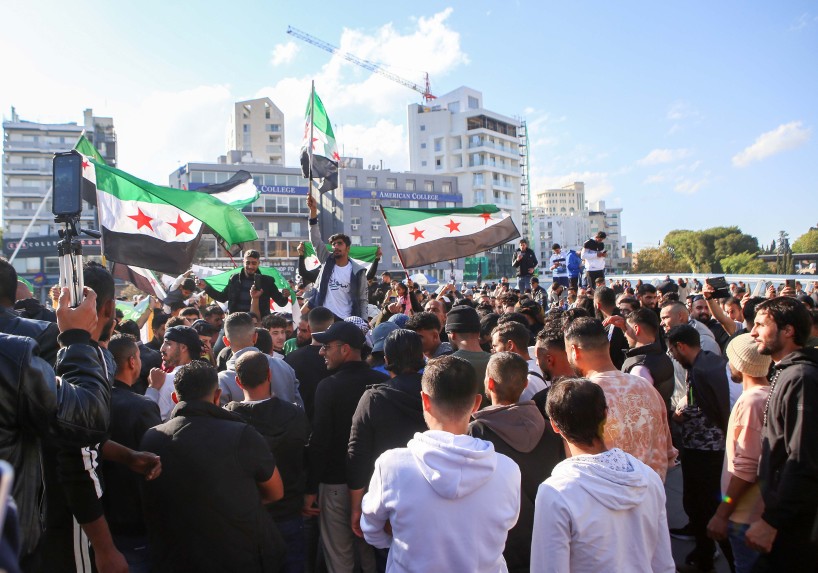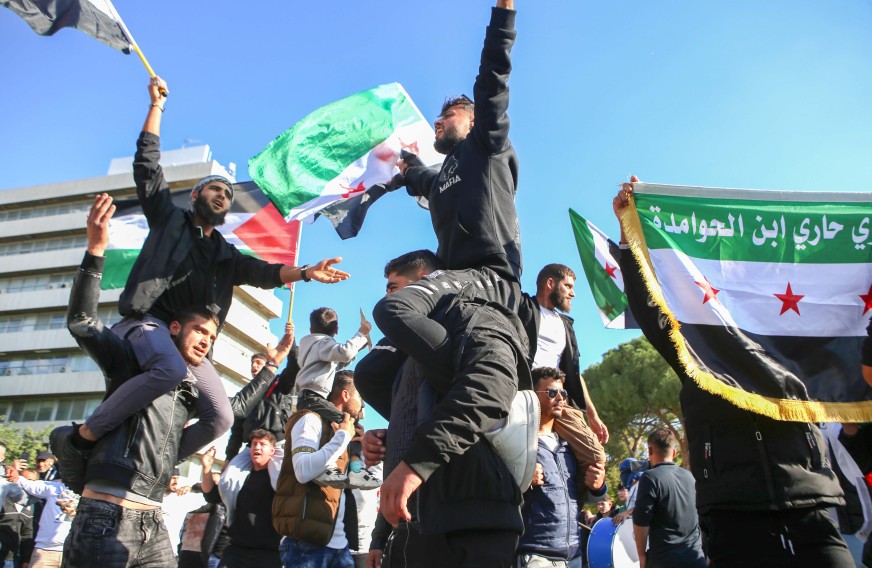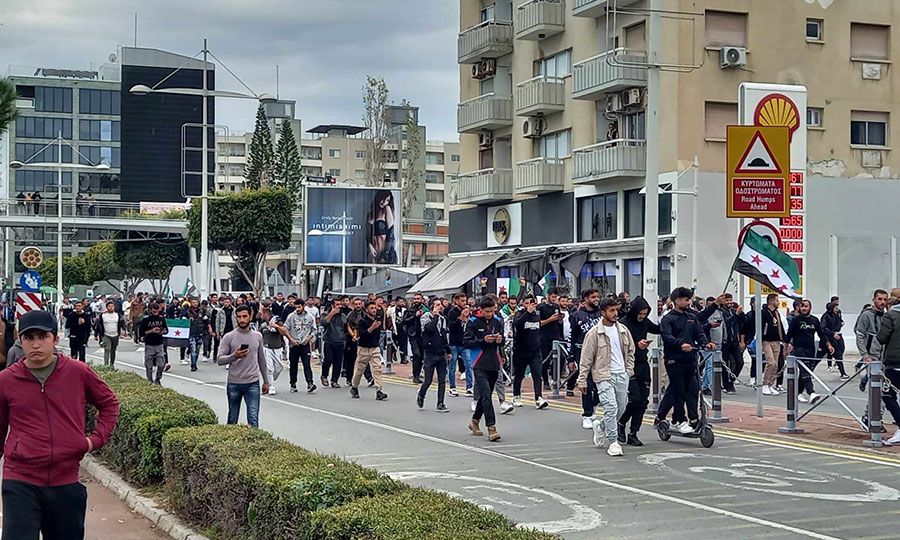
Newsroom
The streets of Nicosia and Limassol erupted with joy on Sunday as Syrian expatriates celebrated the collapse of Bashar al-Assad's regime. Waving flags, chanting passionately, and honking car horns, the celebrations reflected a surge of relief and hope that reverberated among Syrians worldwide.
In Nicosia's Eleftheria Square and near Limassol's old port, the rallies began shortly after noon, closely monitored by heavily armed police and anti-riot units. Syrians filled the streets with banners and placards, fervently shouting slogans against Assad and cheering for the rebels who had advanced into Damascus. The sound of horns blaring and the sight of Syrian flags fluttering from car windows amplified the atmosphere of triumph.
In Eleftheria Square, the festivities continued as Syrians danced, sang, and celebrated the long-awaited fall of the regime.


Meanwhile, in Limassol, demonstrators marched along the embankment towards Germasogeia, where they distributed sweets, sang songs of freedom, and danced for hours. Even after the official gatherings dispersed, some carried on the celebrations, driving through the streets with unabated joy.

While the collapse of Assad's regime marks a historic end to 13 years of brutal civil war — a conflict that claimed countless lives and displaced millions — the celebrations were bittersweet. For many, the joy of victory was underscored by memories of loss and hardship.
Around the world, similar scenes played out. In Sweden, Berlin, and other European cities, displaced Syrians took to the streets, waving flags and embracing one another in disbelief and joy.
Eman Ouad, a Syrian widow displaced to northwest Syria, summed up the mixed emotions of many: “Thank God, thank God. Our freedom has returned. Thirteen years of subjugation. Thirteen years of displacement.”
Yet, amid the celebrations, reminders of the conflict's heavy toll lingered. Syrians recalled loved ones lost to airstrikes, shelling, and the notorious prisons of Assad’s regime. The capture of Sednaya prison outside Damascus, infamous for torture and executions, brought hope and dread. Ahmed al-Misilmani, a journalist displaced from Homs, ran to his balcony in joy when he heard Assad had fled but couldn’t stop thinking about friends who had vanished in Sednaya.
With info from the NYT































